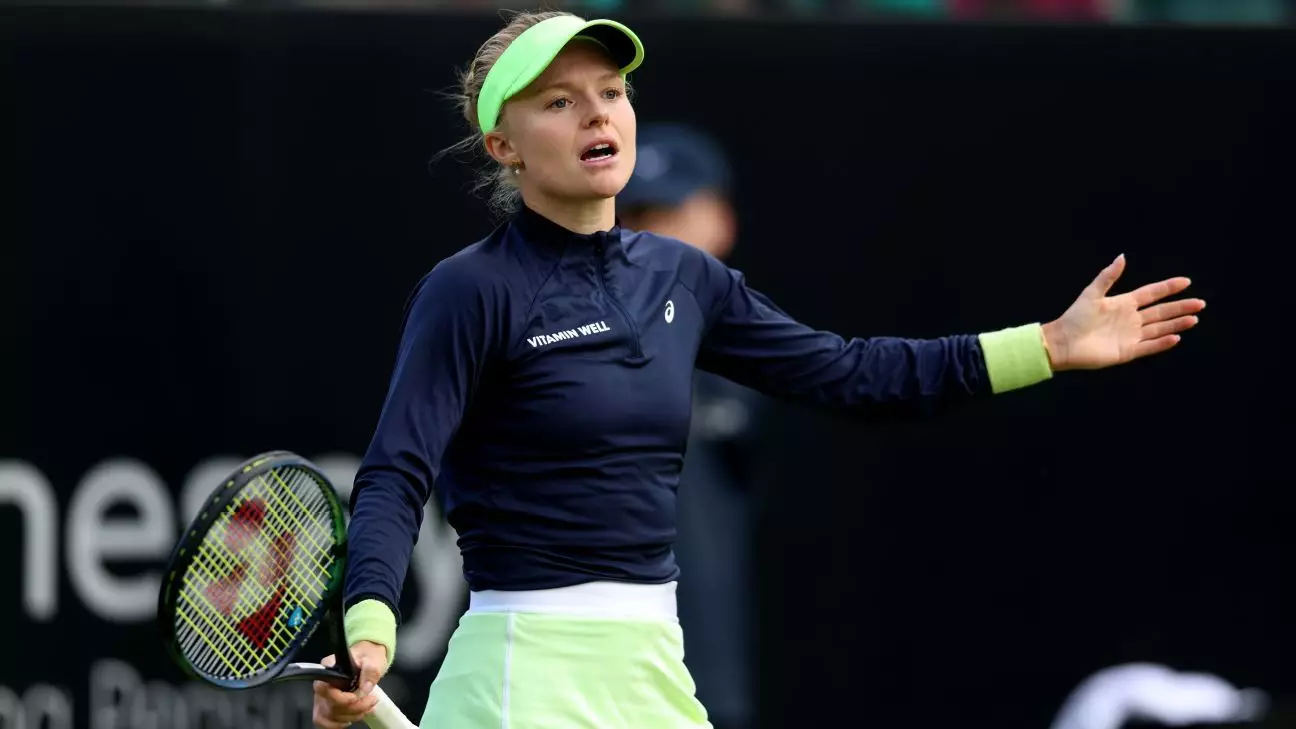In the high-stakes world of professional sports, emotions run rampant, often leading to heated exchanges and regrettable remarks. This phenomenon was exemplified in a recent incident involving British tennis player Harriet Dart and her opponent, Lois Boisson from France. During their first-round match at the Rouen Open, which Dart lost decisively, she made a comment about Boisson’s personal hygiene that sparked outrage and reflection alike. The incident serves as a stark reminder of the importance of conduct on and off the court, particularly in a competitive environment where every player strives not just for victory but also for respect and dignity.
The Ripple Effect of Words
Dart’s offhand remark—requesting the umpire to advise Boisson to use deodorant—was captured live during the match and quickly disseminated via social media platforms. The immediate backlash was not just about hygiene; it was a broader conversation about sportsmanship and the expectations that come with public visibility. In an age where every action can be scrutinized, Dart’s comment transformed an uncomfortable moment into a teachable one about the power of our words. Apologies followed swiftly, with Dart taking to Instagram to express her regret and reiterate her respect for Boisson’s athletic prowess, emphasizing that her remark was made in the heat of the moment.
Lighthearted Responses and Forgiveness
What did Boisson do in response? Rather than retaliate, she chose a more peaceful route, showcasing an exemplary spirit of sportsmanship. Her playful Instagram post featuring an edited picture of her holding a Dove deodorant cleverly indicated that she could also find humor in the situation. This approach not only diffused the tension but also transformed a potentially negative incident into an opportunity for camaraderie and levity. It highlights a key aspect of competitive sports—the ability to rise above personal affronts and maintain one’s integrity and humor.
Lessons Learned and Moving Forward
For Dart, this experience is a pivotal moment in her career, serving as a reminder of the delicate balance athletes must strike between competition and respect. The world of sports often idolizes aggressive tactics, but it’s equally important to foster an environment where athletes uplift rather than undermine each other. Dart’s commitment to learning from this experience showcases her character and her understanding of the responsibilities that accompany her platform.
As athletes move forward in their journeys, the focus should not solely be on victories or statistics but also on cultivating relationships that illuminate the sport. Dart and Boisson’s contrasting reactions serve as an excellent example for future encounters—where respect and humility triumph over conflict and embarrassment. The ability to learn and grow from such incidents will ultimately reflect an athlete’s maturity, lending a deeper meaning to their careers and legacies in the sporting world.

